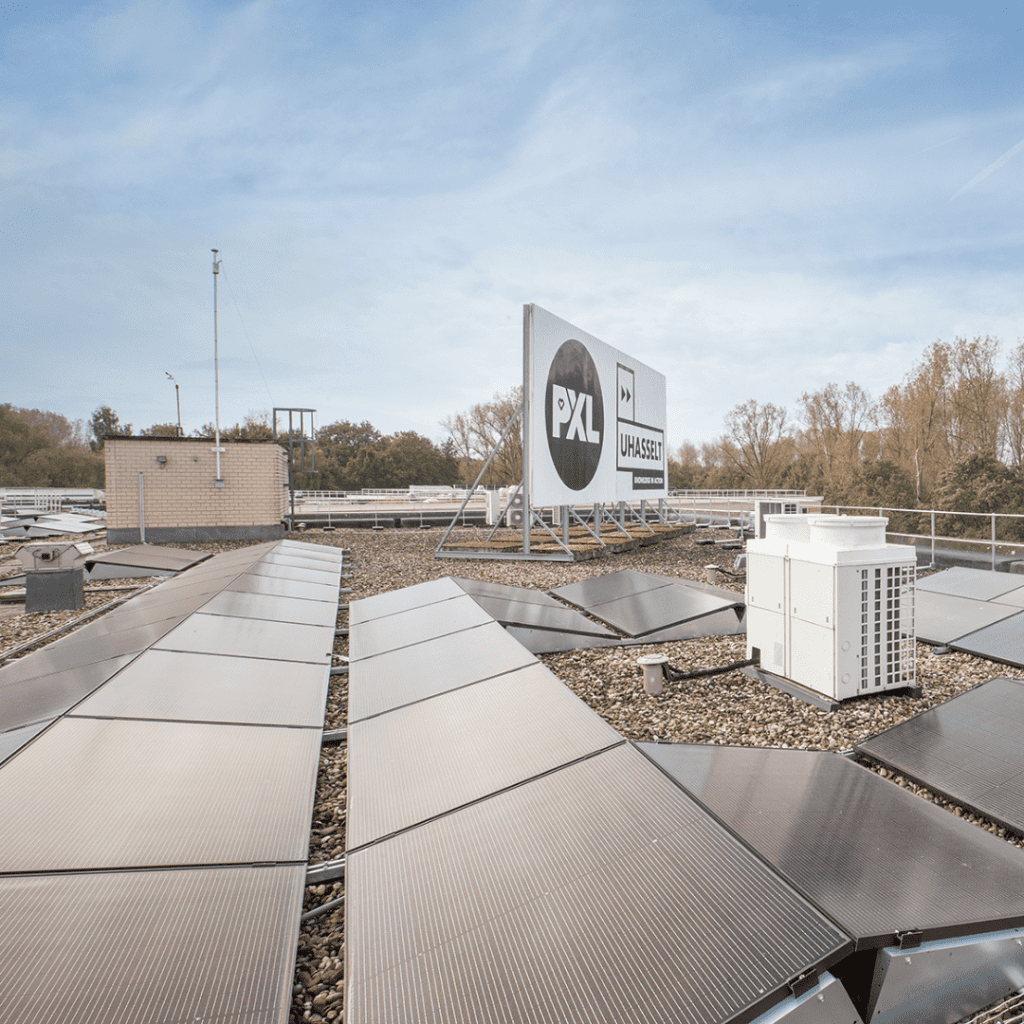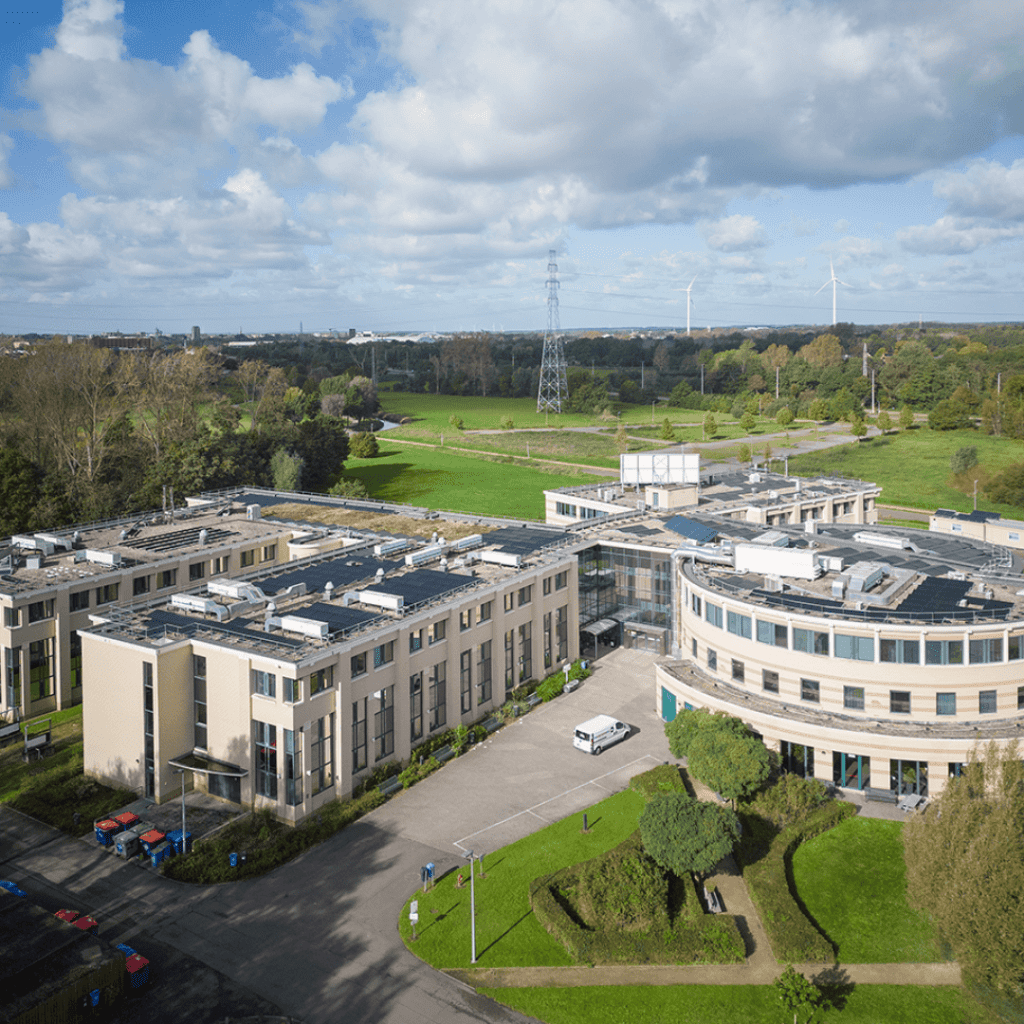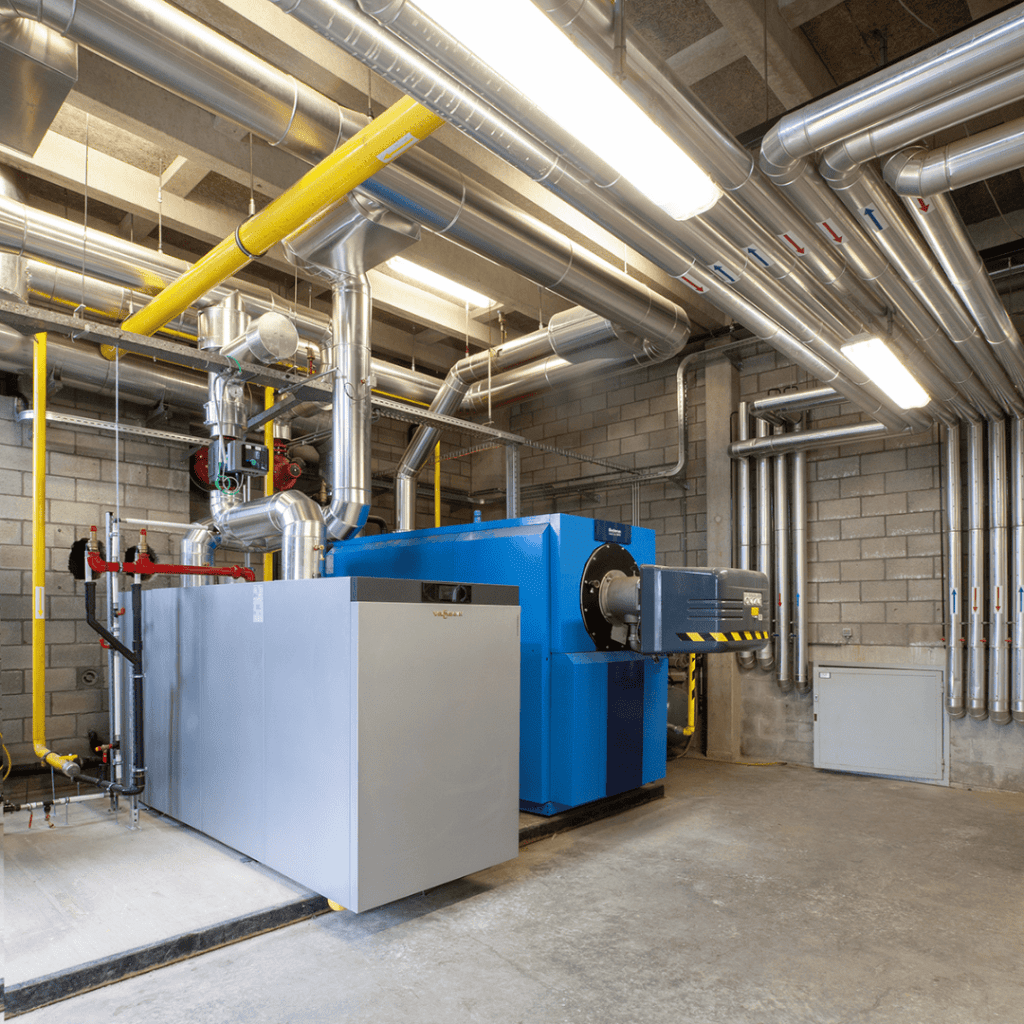
The project
The OEPC project for PXL University of Applied Sciences includes a wide range of energy-saving measures implemented by VMA. These measures are specifically tailored to the building’s needs and designed with a focus on sustainability and operational functionality:
- PV installations: Solar panels to generate renewable energy
- Boiler room renovation: Replacement of outdated equipment with high-efficiency condensing gas boilers
- Relighting: Installation of energy-efficient LED lighting
- Energy storage: Integration of an advanced battery system for smart energy management
In addition, advanced monitoring systems and a central building management system (BMS) are deployed. These tools provide detailed real-time insights into electricity, gas, and water consumption. Water management is further optimized through automated leak detection, which immediately triggers corrective action in the event of a leak.
The results
Thanks to these targeted interventions, VMA guarantees significant energy and cost savings over the contract period:
- 30.80% reduction in electricity consumption
- 29.30% reduction in natural gas consumption
- Avoided emissions of 846.15 tons of CO₂
These results directly contribute to the sustainability goals of PXL University and reinforce their commitment to a greener future.


Technical highlights
The project leverages innovative technologies that prioritize not only energy efficiency but also ease of use and long-term reliability. The integrated monitoring system tracks energy consumption and water usage, including the breakdown of hot water, rainwater, and total water flow. Automated leak detection adds an extra layer of safety and control.
The building management system plays a central role in this setup. It enables users to monitor all parameters in real time and take immediate action when needed. This integrated approach maximizes operational efficiency and provides flexibility for future adjustments.
With this OEPC initiative, VMA delivers a highly customized technical solution aligned with the energy and sustainability ambitions of PXL University of Applied Sciences. The project exemplifies how smart technologies and close collaboration can generate measurable results and long-term impact.